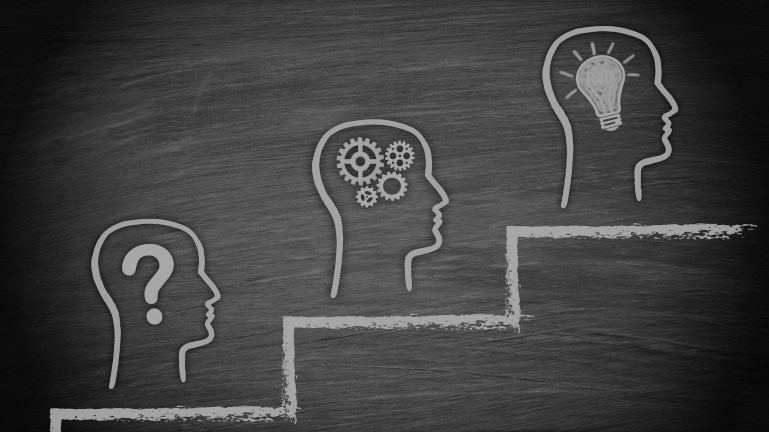
Stories Talk | Presentation Skills and Effective Storytelling
Stories Talk | Presentation Skills and Effective Storytelling
By Mia Kollia
Translated by Alexandros Theodoropoulos
#decisionmaking #myths #performance #efficiency #beliefs
1. “I want to be effective". Many of us believe that efficiency means making a decision very quickly. But in order to be effective, we should have clarified first what exactly needs to be addressed. Haste can lead us in making a decision based on wrong factors, something we will eventually regret.
2. “I am very busy, I don’t have time to commit to this decision”. Postponing a decision is a decision in itself. However, deliberately slowing down to think about what we have to solve will speed up our efficiency. We will save time later by devoting quality time now so that we avoid having to reconside
3. “I just need to solve this problem right now”. This is the typical example of someone missing the forest for the trees. Our problems appear and develop in a general context; a limited focus without an overall consideration can only solve the wrong problem or just a part of the general problem.
4. “The decision is only mine, there’s no need to involve others”. Actually, other people are always involved in our important decisions. Avoiding the big picture of the people who are affected by a decision of ours can, at best, only partially solve the problem and, at worst, make it worse.
5. “I know I'm right. I just want some facts or an opinion to confirm my thinking”. Known as "confirmation bias," this decision-making flaw is behind some infamous failures - from the explosion of NASA's Challenger to the environmental disaster of the Deepwater Horizon, which caused the oil spill in the Gulf of Mexico. In both cases, there was evidence that should have raised concerns, but because a group decision was made, no one wanted to be the one to object. To better understand and define the limits of what we think we know, we must take into account the other side of the coin and try to explain it. This technique broadens our thinking and prevents us from seeing only what we want to see and not what really exists.

6. “I trust my instinct”. It is fine to rely on our instincts when choosing cereals for our breakfast, but for bigger and high-risk decisions we can’t rely on our intuition. Important decisions need an open range of knowledge that allows new information and insights as well as different interpretations.
7. “Decision-making follows a straight line”. In fact, the process of making the right decision is cyclical. We need feedback as we gather information and analyse it. From time to time, we need to go back to find information that we had initially ignored, gather new information or do a different kind of analysis.
8. “I can keep all the ideas in my head”. Big decisions are made up of many smaller decisions. When we try to keep all these pieces in our mind, our memory loses power and our concentration breaks down. Our emotions can also get in the way, leading us to biased thinking. Keeping a record is an important part of thinking and analyzing. Even Albert Einstein or Leonardo da Vinci had notebooks.
9. “I have all the information I need”. While we want to make a decision and move on, we can improve that decision by investing in a little research, which will probably show us that there were other things we needed to consider before making our decision.
10. “I can make a reasonable decision”. Psychologists have proved that no matter how much we want to believe such a thing, none of us is just rational. We all operate through a filter of bias, based on past experiences and emotions. We may think that no one will entice us to make a wrong move, but there are many things that can provoke an emotional reaction.
11. “There is only one way to do this”. Usually, there is always more than one way to make a decision. When we break away from the routine and patterns we follow, we are led to see things differently.
Let's take a break
Behind the above myths are three common and popular ideas. First, as busy people, we don’t need to take the time to make the right decisions. Second, we are rational beings, capable of managing critical issues. Third, decision-making is personal and doesn’t require anyone else to be involved. All three of these assumptions are false. Human beings are not computers. Humans are social beings operating within a community. We need time for self reflection and to develop the ability to face prejudices and be able to think about the big picture.
One way to combat these prejudices is to slow down our thinking for a while, to take our time and reflect on what we are experiencing, before we reach a decision. During this slowdown process, let us ask ourselves the following five questions:
1. What decision-making myths do I rely on to make this decision?
2. How will this decision lead me to achieve my life goals?
3. Do my feelings relate to this decision, are they based on reality or do they reflect my behavioral patterns?
4. What information could help me in making the right decision?
5. How can I better understand the perceptions of those involved in a decision of mine?